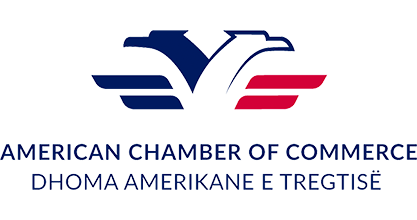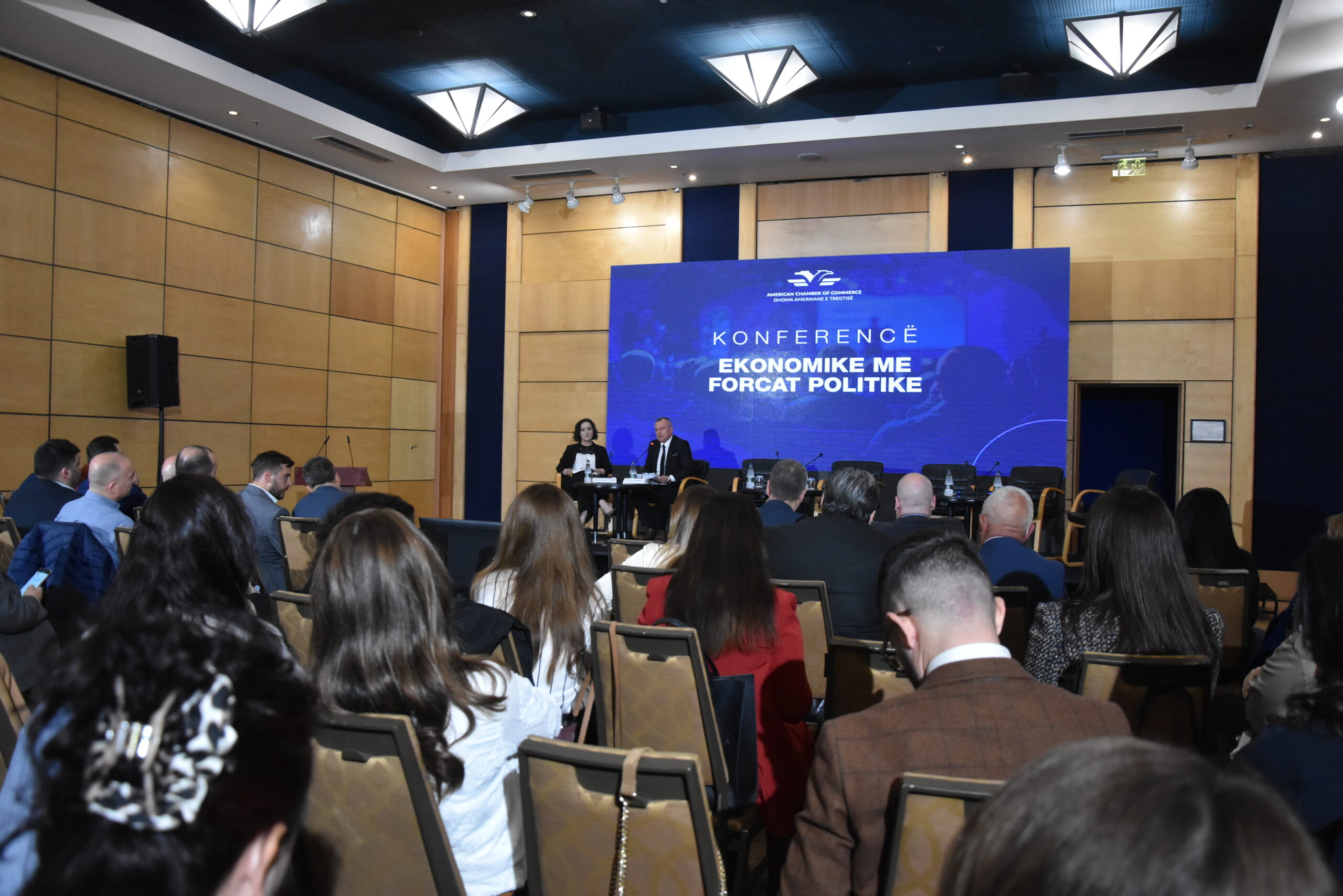The American Chamber of Commerce, in collaboration with Monitor Magazine, hosted an economic conference with representatives from various political parties, focusing on key economic issues that require attention to drive sustainable development.
Moderated by Monitor Magazine’s Editor-in-Chief, Ornela Liperi, the conference brought together major political forces including the Democratic Party, the “Mundësia” Party, the Right-Wing Coalition for Development, the Euro-Atlantic Coalition, and the Together Movement.
Notably absent were representatives from the Socialist Party, who canceled their participation at the last moment. “This is an economic dialogue initiated by the business community, which contributes 20% of Albania’s GDP and seeks to establish constructive engagement with political forces. Their presence is vital,” stated Grant Van Cleve, President of the American Chamber of Commerce. He emphasized that the Chamber maintains political neutrality and remains committed to its core mission: fostering an optimal environment for local businesses and foreign investors.
The discussion was guided by the Chamber’s Strategic Priorities, developed through an extensive consultation process with its expert committees and aligned with international best practices.
“This report outlines concrete, long-term solutions structured around seven key pillars of reform—from improving the investment climate and combating corruption, to modernizing fiscal policy, developing human capital, and building a sustainable, high-value tourism sector. Special focus has also been placed on strengthening public consultation mechanisms and improving the healthcare system—both essential for creating an inclusive and resilient society,” said Executive Director Neritan Mullaj during his presentation.
These themes formed the basis of the questions posed to party representatives, prompting them to explain how their economic programs address these priorities.
Representatives from the Democratic Party—Dorian Teliti, Jorida Tabaku, and Florjon Mima—stressed the importance of efficient fiscal legislation, advocating for a flat tax system that would enhance competitiveness and reduce tax evasion. Proposed fiscal incentives include reducing the property transfer tax to 2% and raising the tax threshold for small businesses, providing benefits to both enterprises and individuals.
Agron Shehaj of the “Mundësia” Party shared his perspective as both a businessman and a politician, highlighting the kind of opportunities that need to be created to support the business sector.
The Together Movement, represented by Jani Marka, emphasized fair legal frameworks and constructive collaboration with businesses. He particularly stressed the need for increased attention to priority sectors like tourism.
Mateo Spaho of the Euro-Atlantic Coalition centered his remarks on placing families and individuals at the heart of the economy, as core contributors to social and economic development. He outlined a range of tax relief measures and support programs aimed at empowering these groups.
Artan Murrizi, representing the Right-Wing Coalition, advocated for a flat tax as a means of supporting business, particularly in the agriculture sector. He highlighted the urgent need for credit access and subsidies in agriculture to help it become a key pillar of Albania’s economic growth.

